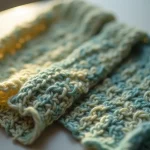Overview of UK Fashion Institutions Focused on Sustainability
In recent years, UK fashion institutions have become a beacon for sustainable design workshops, integrating environmental consciousness into their curriculum. These institutions emphasize the importance of sustainable design in shaping the future of fashion, offering innovative approaches to contemporary education. As sustainability takes center stage, these institutions pave the way for new trends and environmentally responsible practices.
At the heart of their offerings are interactive fashion education programs, which are designed to engage students and professionals actively. These programs provide valuable insights into the sustainable aspects of design, ensuring learners understand not just the principles, but also the application of eco-friendly practices in their work.
Additional reading : Discover unique styles at your favorite gothic clothing store
Embracing hands-on, interactive learning, UK fashion institutions provide a platform where participants can explore sustainability topics deeply. This immersive approach enriches understanding, encouraging participants to experiment and innovate sustainably. Students can expect to learn about advanced techniques, eco-friendly materials, and cutting-edge technologies driving the fashion industry’s sustainable transformations.
By fostering a proactive learning environment, these institutions not only nurture creativity but also equip participants with the interactive fashion education needed to thrive in a rapidly evolving industry. The significance of these workshops cannot be understated as they are instrumental in guiding upcoming designers towards sustainable excellence.
Also to see : Mastering the Art of Choosing the Perfect Bag for Effortless Day-to-Night Style Transitions in the UK
Interactive Sustainable Design Workshops Offered
Sustainable design workshops in the UK offer a hands-on learning approach that captivates and engages participants. These fashion workshops are designed to foster an enriching educational experience, combining theory with practical application. Enthusiasts and professionals alike can explore varied facets of sustainable fashion through meticulously curated sessions.
Workshop Types
Participants can choose from a diverse range of workshop types tailored to different interests and skill levels. From introductory seminars on eco-conscious materials to advanced courses in sustainable garment construction, these workshops cater to a broad audience. Specialized sessions delve into niche areas such as biodegradable textiles and zero-waste pattern cutting, providing a comprehensive understanding of each topic.
Duration and Schedule
Flexibility in duration and scheduling allows participants to integrate these workshops into their busy lives. Options range from single-day intensives to week-long modules, accommodating various learning paces. Evening and weekend classes are available, ensuring accessibility for both full-time students and working professionals.
Target Audience
These workshops attract a wide array of individuals, from aspiring designers to established professionals seeking to integrate eco-friendly practices into their work. Educators, fashion journalists, and sustainability advocates also find value in the workshops, aiming to expand their knowledge and influence within their respective fields. Through these tailored programs, UK fashion institutions have positioned themselves at the forefront of sustainable fashion education.
Sustainability Topics Covered
The diverse range of sustainability topics addressed in UK fashion institutions is a testament to their commitment to eco-friendly evolution. These workshops immerse participants in critical subjects such as sustainable supply chains, carbon-neutral production processes, and the future of regenerative textiles. Key discussions also revolve around circular fashion concepts, encouraging designers to think beyond traditional practices.
Innovative eco-friendly practices form the backbone of these workshops, enabling designers to incorporate sustainable methods into their work efficiently. For instance, learning about natural dyeing processes not only expands creative horizons but also reduces environmental impact. Workshops emphasize the implementation of renewable resources, promoting a thorough understanding of material sustainability.
Delving into design innovation, participants explore groundbreaking techniques such as 3D-printed fabrics and smart materials that respond to environmental changes. These innovative methods not only foster creativity but also push the boundaries of what is possible within sustainable fashion design. The workshops highlight the importance of adaptability, equipping participants with tools to revolutionize fashion while maintaining ecological balance.
These comprehensive sustainability topics embolden designers to integrate eco-friendly practices seamlessly into their fashion endeavors, ensuring a more responsible future. Through innovation and creativity, UK fashion institutions empower participants to significantly contribute to the sustainable transformation of the fashion industry.
Enrollment Procedures and Costs
Enrolling in interactive fashion workshops at UK fashion institutions is a straightforward process aimed at making sustainable education accessible. Prospective participants can begin by exploring specific workshops of interest, available through the institution’s website or catalogue. Each offering provides unique insights into sustainable design workshops and eco-friendly practices.
Once a workshop is selected, the enrollment process typically involves completing an online application form. This allows institutions to gauge each participant’s interests and tailor the learning experience where possible. Notification of acceptance follows, with details on workshop dates, schedules, and preparatory materials.
Understanding workshop costs is crucial for participants planning to join these enriching sessions. Fees vary widely depending on the duration, complexity, and materials involved in the workshop. Comprehensive outlines detailing what each cost covers—ranging from expert instruction to the use of state-of-the-art materials—are provided to ensure transparency.
Financial assistance is often available to support participants eager to delve into interactive fashion education. Many UK fashion institutions offer scholarships or sliding scale pricing based on need, making these workshops accessible to those who might otherwise be unable to participate. This financial support underscores the institutions’ commitment to fostering sustainability in fashion.
Testimonials and Case Studies
Reading participant testimonials offers invaluable insights into workshops’ real-world impact. Individuals frequently highlight transformative experiences, underscoring the profound effect that UK fashion institutions have on their approach to sustainable fashion. Testimonials often reflect participants’ enhanced understanding of eco-friendly practices and newfound confidence in applying these methods professionally.
A myriad of past experiences draws attention to the dynamic and inspiring nature of the workshops. Participants detail their journeys, exploring how workshops have shifted their perspectives on sustainability. The practical knowledge gained equips them with the tools to navigate and innovate in the fashion industry. For some, these experiences spark a complete pivot in their career trajectory, aligning their work with sustainable initiatives.
Case studies further demonstrate the workshops’ impact by documenting tangible outcomes for participants. Whether launching a line of eco-friendly garments or integrating sustainable practices into an existing brand, the workshops are pivotal in shaping industry pioneers. These case studies reveal how workshops have been instrumental in fostering creativity and sustainability, providing a launchpad for influential projects.
Incorporating such firsthand accounts and detailed analyses of participant projects affirms the workshops’ significant contributions to advancing sustainable fashion. The workshops empower individuals to contribute meaningfully to the industry, leading innovative and responsible fashion practices.











